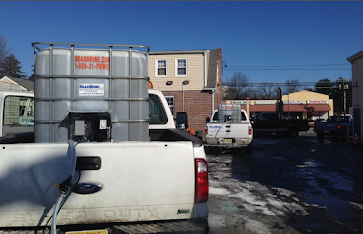How to De-ice Sidewalks and Driveways Using brine solution
In areas where snow and winter weather are typical,
dealing with slippery sidewalks is a reality of life. Ice may be dealt with in
a variety of ways, including melting it with one of several chemical compounds,
or providing traction and preventing slides with more ecologically friendly treatments.
Amongst the various chemical compositions, brine solution is a common
anti-icing and deicing agent widely utilized by a lot of people.
The brine driveway and
sidewalk solutions are used to pre-wet the roadways, preventing ice from
clinging to the surface. Applying a brine solution to the ice also breaks it
down into tiny bits that may be easily and rapidly removed from the road.
Making a brine solution to melt ice is a simple and inexpensive process that
only takes a few common home products.
De-icing using Brine products
Using a brine solution instead
of rock salt is a more ecologically responsible option. Municipalities have
been utilizing this strategy to pre-treat roads since the salt in the brine
solution works equally as well as regular rock salt at preventing snow and ice
from sticking to concrete. Furthermore, driveway and sidewalk brine solutions
online are far less expensive than using rock salt while significantly
increasing water quality. For small-scale snow and ice removal on driveways and
sidewalks, a homemade brine solution can be sprayed.
Homemade Brine Solution
De-icing is now done with a combination of
chemicals in water and other liquids to cover as much surface area as possible
with the least amount of product. You may make your own brine solution if you
like the old school way. Making your own brine or solution in a large bucket
and spraying it over the ice's surface will allow you to use fewer dangerous
chemicals while covering a larger surface area. The ability to prepare and
store the solution ahead of time, as well as having enough left over for
reapplication as needed, are all advantages.
Are They Dangerous?
When compared to the alternative of
harmful situations, the advantages of using brine solutions may exceed the
negatives. De-icers in general have the ability to harm plants and concrete, as
well as corrode metal. For vegetation and hard surfaces, moderate application
combined with ample rain to dissolve and wash away the product should be
sufficient.
The impacts of the freezing point of
water, not the effects of salt, cause damage to concrete. The frequency of
freeze/thaw cycles rises when the freezing point of water is decreased (by
forming a brine), and the expansion of frozen water (hydraulic pressure) can
surpass the strength of concrete.

Comments
Post a Comment